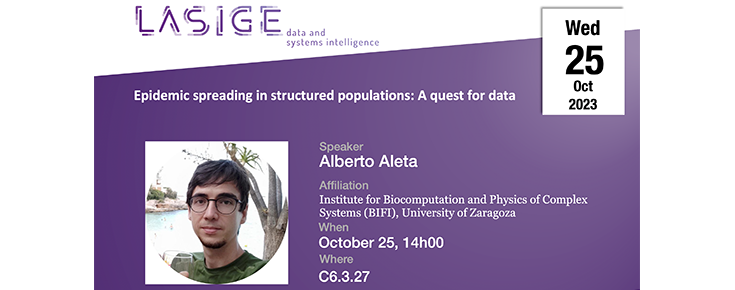
Por Alberto Aleta (Institute for Biocomputation and Physics of Complex Systems (BIFI), University of Zaragoza).
The modeling of infectious disease spread has witnessed remarkable progress in recent decades, driven by the proliferation of data and the evolution of advanced data collection and analysis methods. Emerging disciplines such as network science have also significantly contributed to these advancements. However, the efficacy of any disease spread model hinges on the quality and comprehensiveness of the data employed for its development and calibration. In this presentation, we embark on a quest to explore the integration of diverse data sources, shedding light on some questions while simultaneously revealing new layers of complexity. Equally important is our examination of the inherent limitations that afflict these models, stemming from mathematical definitions and data availability constraints. The intricate dynamics of an epidemic are inextricably linked with population behavior, underscoring the need for accurate predictions of the human aspect of the disease.
Bio: Dr. Alberto Aleta is a Spanish physicist and data scientist expert on the field of Complex Systems. He is mostly known for his work on epidemic modelling, specially during the Covid-19 pandemic. However, his interests are very interdisciplinary, with contributions in fields like game theory, sustainable nutrition and social dynamics. Alberto’s work is characterised by the use of data driven approaches to model dynamical systems and a quest for unraveling the causal mechanisms behind the dynamics observed. His works often rely on the use of agent based models, network science, higher order networks and multivariate statistics. Alberto obtained his PhD in Physics (Cum Laude) from the Universidad of Zaragoza in 2019 and then he did a postdoc stay at ISI Foundation (Torino, Italy) until 2022. Recently he has been granted a Ramón y Cajal fellowship and is currently working at the Instituto Universitario de Investigación de Biocomputación y Física de Sistemas Complejos (BIFI).





